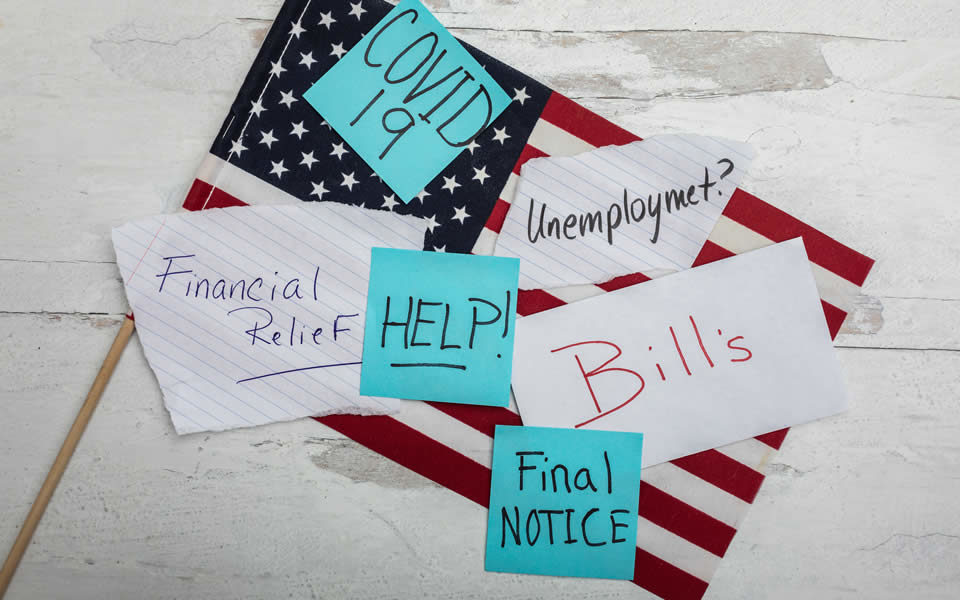President Trump Issues Executive Orders
By Michael D’Addio, Principal, Tax & Business Services
In the absence of congressional agreement about the extension of COVID-19-related relief, the President signed four Executive Orders potentially impacting millions of taxpayers. These orders have been challenged by members of Congress as being unconstitutional, and it is unclear whether looming court action will block their enforcement.
The Executive Orders are as follows:
1. Enhanced Unemployment Benefits
There would be a reduction of the $600 per week enhancement of unemployment benefits, which expired at the end of July, to $400 per week retroactive to August 1. However, only $300 of this benefit would be paid by the federal government, while $100 must be contributed by the states. The federal portion would come from redirecting unspent FEMA Disaster Relief Funds. The enhanced payment would continue until the earlier of December 6, 2020, or the Disaster Relief Fund balance drops to $25 billion.
Treasury Secretary Mnuchin indicates that the state portion is intended to come from federal funds previously provided to the states. States, already feeling fiscal pressures, may object to this sharing arrangement.
There is a question as to whether federal funds can be redirected in this manner, since Congress did not appropriate these funds for this purpose. However, the administration feels that since the pandemic has been declared a disaster, the Stafford Act provides a legal basis for this arrangement. Congress could possibly look to enjoin the spending of these funds, which would block the relief measure.
2. Payroll Tax “Cut”
The Executive Order authorizes Treasury to look at methods to provide a deferral of the employee share of social security taxes under IRC section 3101(a) and Railroad Retirement Act taxes under section 3201(a) for September 1 through December 31, 2020. It covers employees earning up to $104,000 per year ($4,000 bi-weekly). The amount of tax deferred will not be charged interest, penalty or additional assessment.
This provision is not automatic, but provides that Treasury Secretary Mnuchin can exercise his authority to defer the withholding, deposit and payment of tax under IRC section 7508A. This provision of the Code permits a deferral of the payment of taxes of up to one year. It was under this authority that Treasury delayed payment of 2019 income taxes to July 15, 2020.
The Executive Order directs the Treasury Secretary to explore methods to achieve forgiveness of the amounts of tax deferred, including legislation.
The key question for employers is whether the obligation to pay the deferred tax remains with them or is somehow passed on to the employee. If the employer remains liable for the deferred tax, then it may decide not to institute this policy for fear that it could be left with the liability.
At this point, there is nothing that must be done until Treasury actually issues guidance.
3. Evictions
The Coronavirus Aid, Relief, and Economic Security Act (CARES Act) of 2019 prohibited late fees and evictions until July 25, on properties with federal mortgage programs or those receiving HUD funds. Since new legislation was not passed, this ban has been lifted.
The Executive Order provides that the secretary of HHS and director of CDC shall consider whether the temporary measures halting residential evictions of tenants for failure to pay rent are reasonably necessary to prevent the further spread of COVID-19 from one state or possession into any other state or possession. The order also authorizes the Treasury Secretary and HUD Secretary to consider whether financial assistance should be provided to renters.
4. Student Loan Payment Deferral
The Executive Order looks to waive student loan interest until December 31, 2020. Under the CARES Act, the waiver of student interest applied until September 30. However, this extension applies only to loans held by the Department of Education.
Marcum will continue to keep you updated about further developments with respect to these Executive Orders. If you have any questions, contact your Marcum tax professional or contact Michael D’Addio at 203.781.9665 or email Michael.
Coronavirus Resource Center
Have more questions about the impact of the coronavirus on your business? Visit Marcum’s Coronavirus Resource Center for up-to-date information.





















